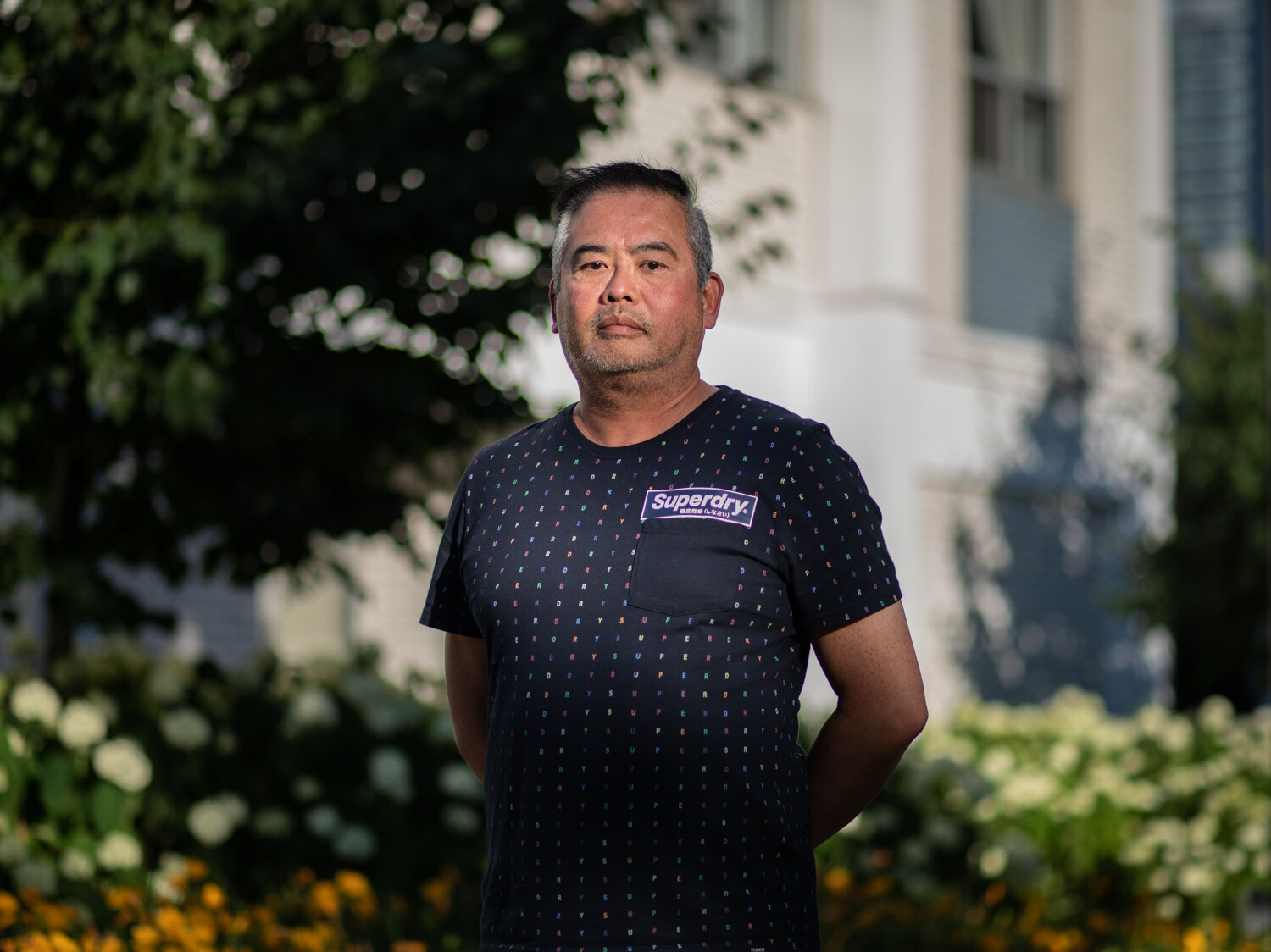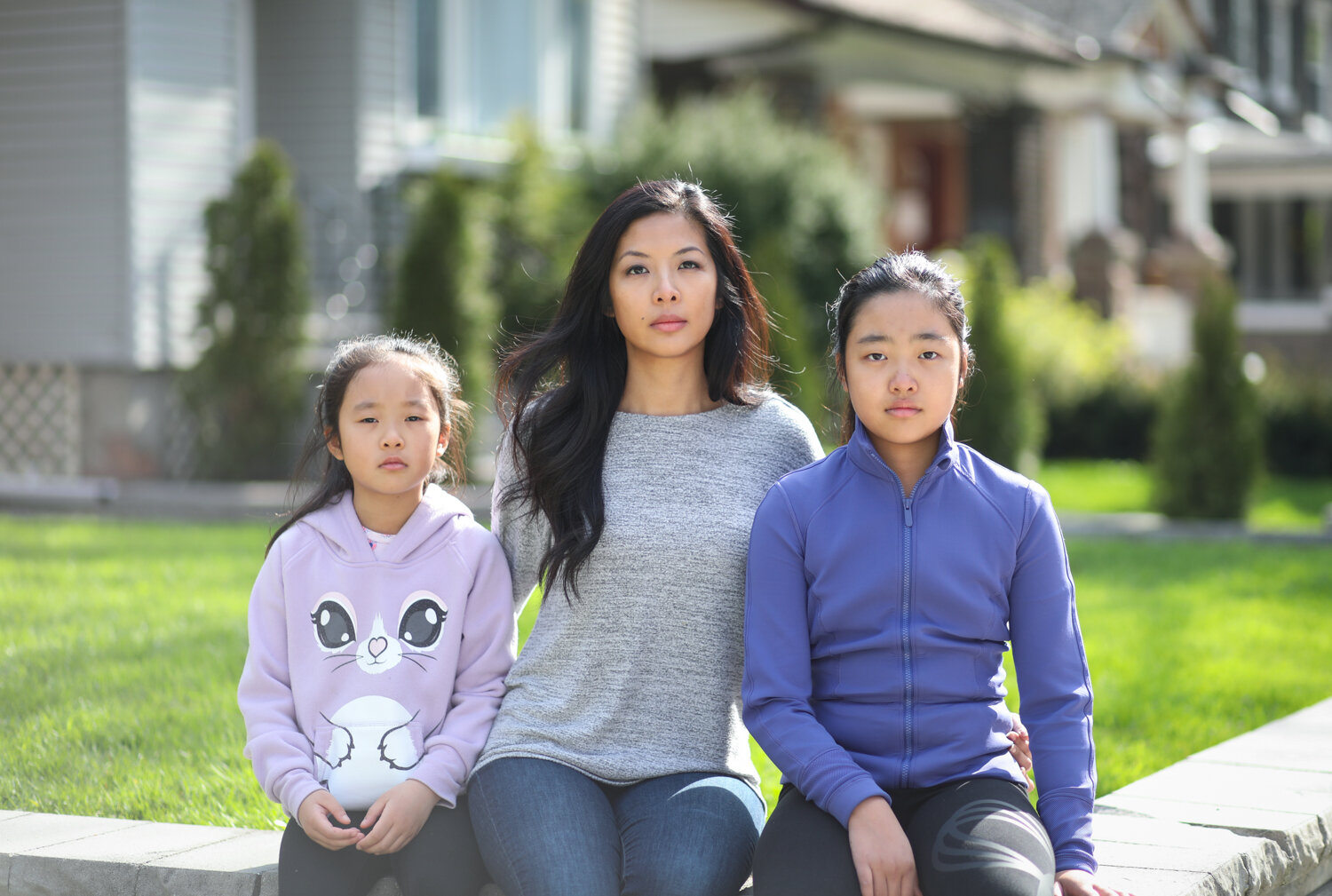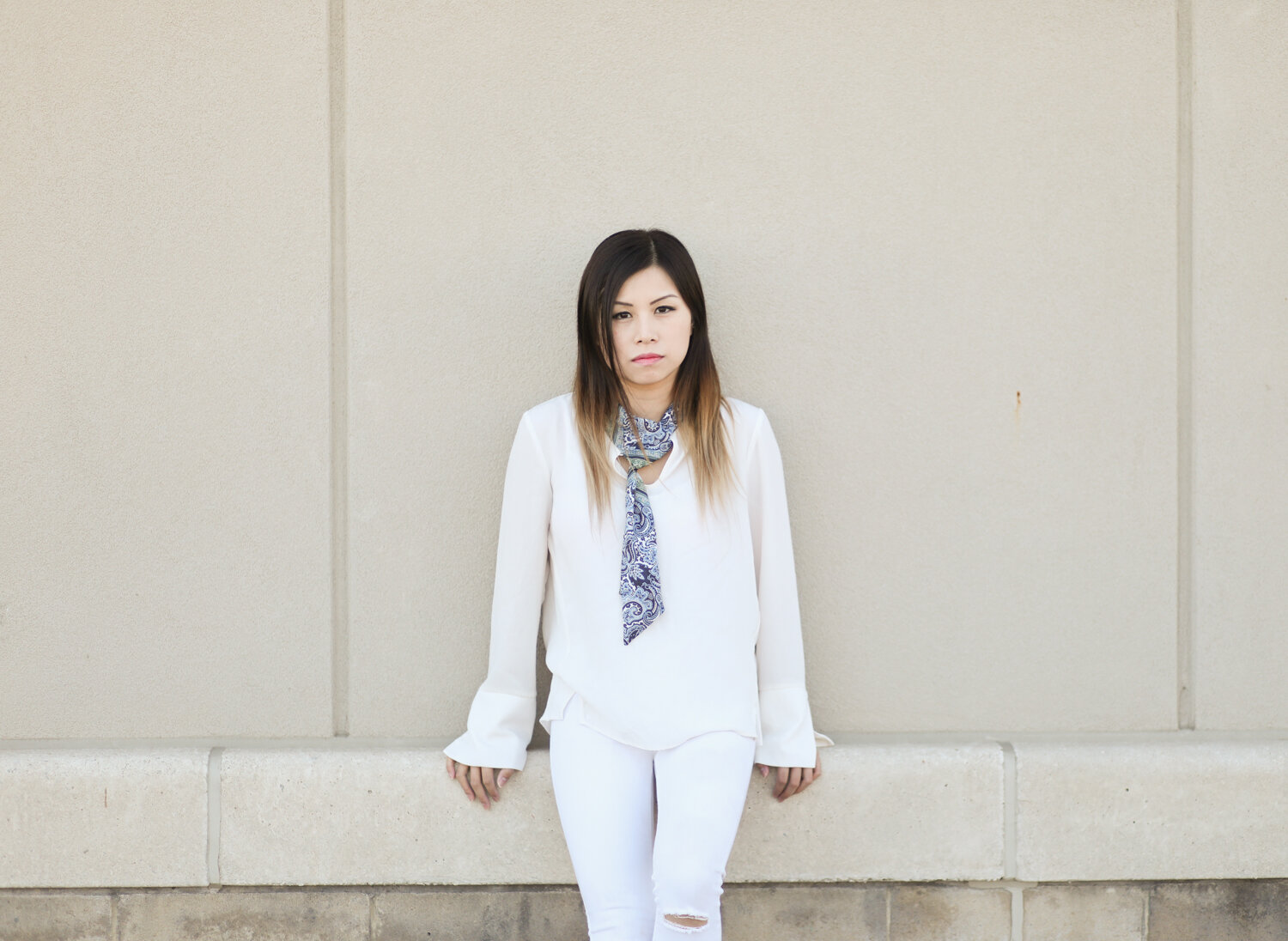







Andre Goh, 57, workplace investigator
From: Toronto, Ont.
In late March, I was walking near the Village in Toronto and a white couple were coming towards me. “You should go home,” the man said as they passed. At first I thought they meant I shouldn’t be walking around. It was early in the pandemic and everyone was nervous. After thinking about it I realized what they really meant—it was anti-Asian harassment in the form of a microaggression. I knew by the scorn on his face.
I was born in Malaysia and moved to Canada in the early 80s. I was one of two Asian kids at my high school, which had about 1,000 students. The other Asian was born in Canada. I tried to befriend him but he immediately rejected me. “Don’t talk to me, don’t look at me,” he said. “You don’t exist.” I understand now why he did that, it was self-preservation, because I’m worse, I’m an immigrant. But back then, small things like that constantly reminded me I’m not like everyone else. The experience of being othered has been with me a long time. I’m always wondering if I’m good enough. There’s even a point in my life I convinced myself I was white. It was easier.
As a gay, Asian male, I’m very comfortable in my skin. But incidents remind me I’m not the same—I’m an “other”. All it takes is one small thing. That’s how racism works—a lifetime of triggers. You can ignore it, but it eats at you inside.

Kennes Lin, 29, youth counsellor
From: Toronto, Ont.
I’m a registered social worker and I provide mental health counselling for East Asian youth. The first incident I heard from a student occurred when the pandemic started, at the end of January. One of the student’s classmates said, “We better put on hand sanitizer because there’s a Chinese person in front of us.”
Another Grade 11 student I work with endured harassment from classmates. They would tell him he was the reason for the coronavirus. The student is a newcomer and his English isn’t strong. He experiences depression and anxiety because of a history of family violence and poor relationships with his parents. This is compounded by the fact that he’s self-conscious about his English skills.
Before the pandemic, Asian identity was invisible. Now, it’s hypervisible. The incidents I hear about in counselling are microaggressions, but they can really affect youths’ self-esteem and confidence as they grow up. Adolescence is already a confusing time, but to be in a situation where you’re constantly blamed, put down or targeted can really affect someone’s ability to see that there could be a bright future ahead of them.

Inthida Ngeth, 40, vice president of operations at a financial company, and her two daughters Emily, 11, and Audrey, 8.
From: Waterloo, Ont.
When my daughters listen to the news with me, I try to make sure they understand what’s going on around the world. I explain that because the virus originated in Wuhan, some people believe Chinese people carry the virus. I want to make sure they stand up for those who face discrimination. When they go back to school in September, I worry other children will say, ‘You were the cause of the virus’. This may affect how they feel about being Chinese-Canadians. I tell them to stand up for themselves; to explain that it came from China, but that the virus doesn’t choose based on race.
Children say a lot of things that they don’t mean. I tell them to invite the conversation, to ask questions like, ‘Why do you believe that?’ It’s not like racism towards Asians has never existed before. Now, it’s different—it’s fuelled by the pandemic and by fear. We need to raise awareness about racism and talk about it. I volunteer with North American Association of Asian Professionals, a non-profit that develops Asian talent and promotes diversity in the workplace. Since the pandemic started, we’ve held several online campaigns aimed at dismantling the association of Asians with the coronavirus.

Ka Kit Fan, 29, assistant parts manager at auto company and Caroline
From: Markham, Ont.
In late April, My girlfriend and I were picking up food from BarBurrito in downtown Toronto during the lockdown. I was waiting for her in the car when I saw a man knock her phone out of her hand inside the restaurant. That’s when I knew something was wrong. The man who did this to her was a Black male in his early 20s. He was on crutches. I got out of the car and ran to help her.
“What’s your problem?” I said. “Look, it’s her Asian boyfriend,” he remarked, to his two friends who were also in the store. They were two white men in their early 20s. One was carrying a skateboard. They began punching and kicking me, then they hit me with the skateboard and crutches. As I tried to defend myself, the skateboard hit my arm and I ended up with a fractured hand.
I grew up in Markham, Ont. and have always felt that Toronto was a safe place but this has affected me, both physically and mentally. Showering and putting on a shirt have become difficult tasks all because of a racist attack.

Bonnie Ip, 30, flight attendant
From: Markham, Ont.
In March, I was at Shoppers Drug Mart in North York with my boyfriend. We were cashing out and there was a Caucasian lady cutting in line behind us. “There’s a gentleman behind me waiting for the cashier,” I said politely. “The line starts over there.” Before I could even finish that sentence, she pointed a finger to my face. “You can’t talk to me; you’re Chinese, you have coronavirus,” she said. I was shocked. She continued spewing insults: “You’re dirty, you’re disgusting, and you have coronavirus.”
I was speechless, and I could feel my heart racing. I never imagined anyone would aggressively approach me in public like that. I didn’t know if she would harm me physically. To me, Canada is a place full of welcoming, respectful and kind-hearted people. I’m a flight attendant, so I’ve been to 30 countries around the globe. I believe Canada is one of the safest countries in the world. I didn’t have it as bad as others, given what I know about other anti-Asian out there. I have a friend who had to go to the emergency room after being attacked. This was just a verbal assault, but no one deserves it.

Rachel Chen, 42, head of special education and ESL, with her sons Mason, 7 and Tristan, 10.
From: Caledon, Ont.
In early February, before schools closed, my son Mason told me his classmate told him he had coronavirus because he’s Chinese and Chinese people eat bats. Mason is usually talkative, but he had trouble telling me this. I think he was embarrassed.
Mason is only in Grade 1. At that age, they may not understand what racism means, but I think parents need to talk to their children about racism and how it affects kids. If we’re not teaching children now, then we’re going to raise a generation of ignorant people. My older son, Tristan, is 10. I hope he’s built up enough confidence in his identity as a Chinese-Canadian to be able to handle racist remarks. I don’t think Mason fully understood what was happening. He internalized it.
There are nations that want to hold China accountable for the coronavirus, and children learn a lot about world politics at home. When they go back to school, I worry that other kids will make comments to my boys that will make them feel bad about being Chinese. I believe that a conversation needs to be had in schools about how people should treat each other, regardless of colour or race.

Rachel, 31, communications specialist at a tech company
Toronto and her husband Michael.
I grew up in Kingsville, Ont., the southernmost town in Canada. The population was 97 per cent white. I was always aware of my differences, since I was one of only two non-white students at my school until Grade 6. I don’t know what it feels like to blend in. In Grade 9 history class, two classmates spent the entire time telling me I should be deported. Around 2007, a classmate called me “bird flu.” I never want to relive those moments.
Every time I go on Twitter and see #chinesevirus trending, it triggers a lot of my past experiences and I feel a lot of shame. It doesn’t help that Trump called the coronavirus the “kung flu” multiple times. I can hear the blood pumping in my ears. My heart starts racing and I start becoming red—it’s my fight-or-flight response.
When I’m walking on the street, I think, Are people looking at me? Do they think I have COVID? I don’t walk by myself outside anymore. I always make sure my husband is with me. I’m afraid someone will say something racist or hurt me, physically.